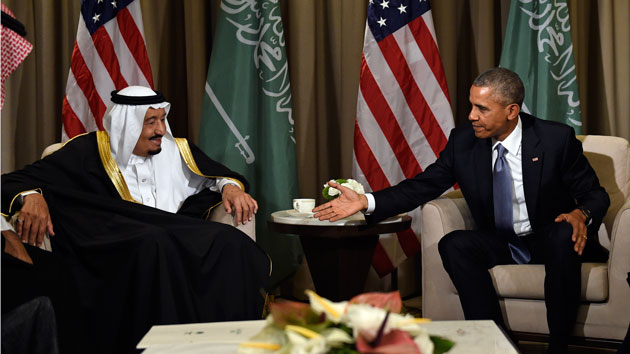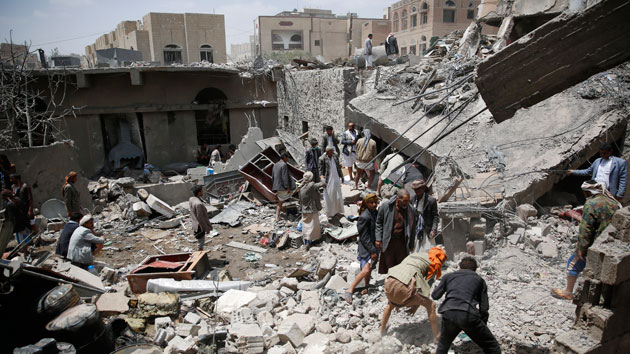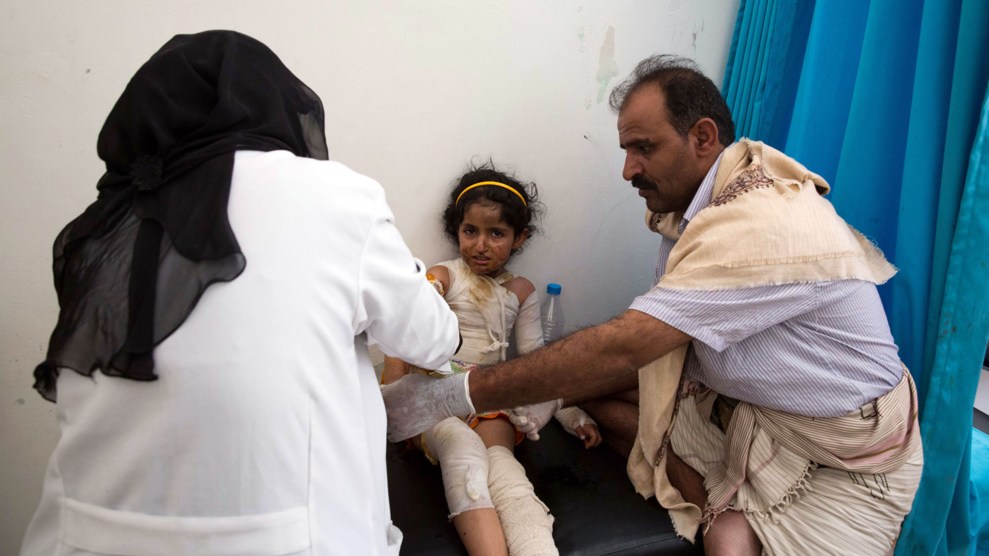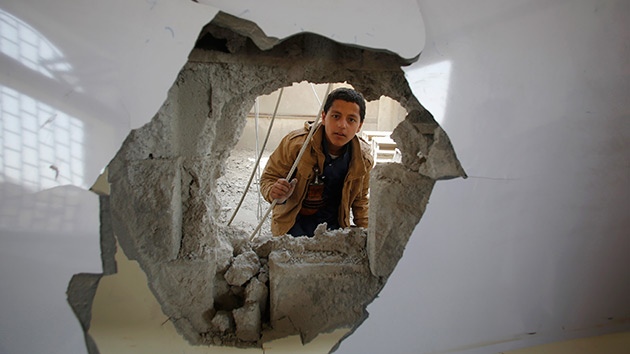A Saudi airstrike hit a crowded marketplace in Mastaba, Yemen, on March 15, killing at least 97 civilians, including 25 children. “We saw people shredded to pieces. Some with no head, no hands…Unrecognizable,” one survivor told Human Rights Watch when a researcher from the organization investigated the site two weeks later.
It was one of the deadliest strikes in 12-month-old civil war, highlighting the devastating use of weapons supplied by the United States and other Western countries in attacks that human rights organizations call potential war crimes.
In Mastaba, Human Rights Watch came across what it says are remnants of an American-made MK-84 bomb paired with a “smart bomb” guidance kit. The group also reviewed images of remnants of another bomb found by British journalists and determined it to be the same kind. These 2,000-pound general purpose bombs are the largest of their class and are capable of inflicting massive damage on their targets.
The Saudi-led coalition has been criticized for carrying out indiscriminate bombings in the civil war, which began last year after rebel forces seized control of the government. The air campaign is responsible for the vast majority of the conflict’s civilian deaths, according to the United Nations. An airstrike in February that resulted in at least 32 civilian deaths led UN Secretary General Ban Ki Moon to call for an investigation.
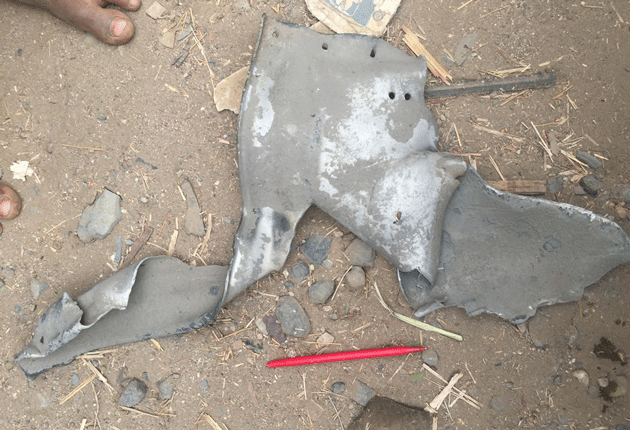
Western governments have also come under fire for their roles in the conflict. In December, a group of lawyers wrote a legal opinion stating that the United Kingdom is breaking domestic, European, and international law by supplying weapons to Saudi Arabia. A lawsuit filed in March seeks to overturn a $15 billion Canadian arms deal with Saudi Arabia. An international movement to seek an arms embargo on Saudi Arabia is growing.
Despite providing weapons, intelligence, drones, and other assistance to the Saudis, the United States has so far been subjected to less scrutiny. In the past year, the Obama administration has inked arms deals with Riyadh worth more than $20 billion.
Witnesses told Human Rights Watch that the first MK-84 bomb struck near the entrance of the Mastaba market at around noon, and five minutes later, the second bomb hit, killing and wounding both those who were trying to escape and others helping the victims. The day after the strike, a team of UN investigators visited the site and compiled the names of the 97 civilian victims. And they found another 10 bodies “burned beyond recognition,” bringing the death toll to 107.
“Even after dozens of airstrikes on markets, schools, hospitals, and residential neighborhoods have killed hundreds of Yemeni civilians, the coalition refuses to provide redress or change its practices,” Priyanka Motaparthy, emergencies researcher at Human Rights Watch, said in a statement. “The US and others should pull the plug on arms to the Saudis or further share responsibility for civilian lives lost.”

